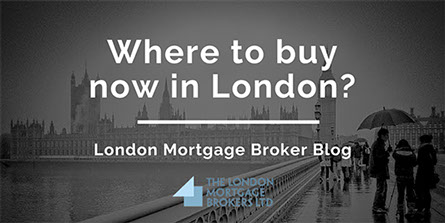22/05/15 - What’s a palace worth these days?

There has been a lot of news around recently and, after weeks of waiting, we have all finally learned the answer to the question that has been on everyone’s lips: will the royal baby be a boy or a girl?
Well, we now know that William and Kate have had a baby daughter, Princess Charlotte. As every three-year old girl knows, princesses live in palaces. And palaces don’t come cheap.
Here at LMB we endeavour to answer all the property-related questions that our clients might have. So, in that spirit we have done a bit of research. If you want to live the property lifestyle of the Cambridges, just how much money will you need?
On Saturday evening Prince William drove his family home to their London residence, Kensington Palace. Kensington Palace Gardens is the most expensive street in the UK, and probably one of the most expensive in the world. Neighbours include Britain’s richest man, Lakshmi Mittal, and the Sultan of Brunei.
Mittal bought his pad from Berni Ecclestone for £57 million in 2004. Foxtons founder Jon Hunt bought his house for a much more reasonable £15.75 million a year later in 2005. So, property prices on the street vary. Is there a possibility of a bargain purchase for a canny investor? Probably not.
The Cambridges spend most of their time at ten-bedroom Anmer Hall in Norfolk. There are no directly comparable properties in the area, but a nearby six-bedroom barn conversion would set you back the best part of £2 million. The royal couple reportedly spent £1.5 million renovating Anmer Hall. Hopefully they took advice from property professionals to make sure the investment has a positive impact on selling price.
Finally, one day the family is likely to move into Buckingham Palace. With 775 rooms and more than 200 bedrooms there are also no directly comparable properties in the area. However wealth-bible Forbes Magazine reckons it’s probably the most expensive home in the world at over £3 billion [insert weblink: http://www.forbes.com/sites/luisakroll/2012/06/07/queen-elizabeth-lives-like-a-billionaire-but-is-herself-not-quite-as-rich/] . Of course, the Queen can’t sell it so it is literally priceless.
So there you are: if you want a slice of the Kate & Wills property lifestyle, you will need deep pockets and a good mortgage broker. And the Queen as a grandmother.
If this has whetted your appetite and you fancy a palace of your own, get in touch with Chris and Phil at LMB and they will be happy to work something out for you.
Last April the government introduced one of the most far-reaching and important changes to the mortgage industry for decades: the Mortgage Market Review.
The rules, which affect every broker, lender and borrower, were designed to address the lax lending standards that were in place in the lead up to the 2008 financial crisis. They focus on affordability. Self-certified mortgages are out. Borrowers now have to prove to lenders that they have the money to service their loans. That means that all loans are income verified and personal expenditure is scrutinised more than ever before.
So what do we, at LMB, think about this, and what have our experiences over the last year been?
We are absolutely in favour of sensible regulation and sensible lending. The pre-2008 mortgage market was in need of reform. Our philosophy is that we are there to support our clients for the long term, and we would always make sure that the deals we negotiate for our clients are affordable and sensible.
The borrowing process has become much more lengthy and involved and it is certainly true that some loans that would have been approved before the changes came into force would not go though today.
On the whole, things have been manageable although there have been a few odd queries from lenders and some irrational decisions. For example we have encountered situations where lenders have penalised a borrower for a savings standing order on their bank statement and reduced lending as a consequence. However having a good broker on hand to negotiate on your behalf can usually sort things like this out. We have always managed to help lenders see sense.
More controversially, lenders may take into account voluntary pension contributions when calculating affordability. In our view this is not helpful as now more than ever people should be encouraged to save for their retirement, and we certainly do not recommend that our clients stop paying into their pensions to help fund a property purchase.
We also think that the self-employed and people who have suffered in the past from an adverse credit score would more than ever benefit from specialist broker advice.
There is one easy bit of advice that we can give to everybody: if you can, reduce the amount you pay in loans. Lenders will scrutinise the amount you are paying to service personal debt such as bank loans, credit cards and car finance agreements. Sensible management of debt is more easily recommended than implemented, but every little helps.
If you want to find out more about how the Mortgage Market Review affects you, pick up the phone or send off an email. We will be happy to go through it with you.
22/05/15 - The Mortgage Market Review a year on – what it means for borrowers
After the longest UK election campaign in history it’s now all over. The people have spoken and cast their votes. Now all that remains, as Bill Clinton once said, is for politicians to work out just what it was that the people actually said.
Property has been at the forefront of the parties’ campaigns. The Tories have sought to position themselves as the friends to the property industry, while Labour have focused their fire on perceived fat cats with their “mansion tax”.
Here is a quick roundup of the major property-related points that have been raised during the campaign.
Chancellor George Osborne has been playing a long game. In December he unveiled a stamp duty overhaul designed to benefit most homebuyers. The party has also promised to extend Help to Buy and has pledged more first-time homes for young buyers.
Their most eye-catching property-related policy, however, took almost all commentators by surprise. Their plan to extend right-to-buy to housing association tenants has been extremely controversial. A vintage Conservative policy or a disaster waiting to happen for social housing? It depends which newspaper you read.
Labour has made a point of looking at the top of the property market with their so-called “mansion tax” heading up the bill. The proposed tax is a new levy on property worth more than £2 million. The more expensive your property, the more you pay. For example, somebody owning a home worth between £1 million and £2 million is likely to pay about £250 a month, while owners of homes worth tens of millions, and second-property owners will pay much more. Labour say the tax is justified to fund public services such as the NHS, but critics have claimed it will lead to an “exodus of wealth”.
Labour have also pledged to help first time buyers by reducing stamp duty on properties worth up to £300,000 to zero. They claim their policies will lead to a “building boom” that will solve the “housing crisis.”
The Liberal Democrats are promising to boost new property development. They want to build 300,000 new homes a year (100,000 more than the other main parties) in ten new garden cities.
UKIP want to release brownfield sites for redevelopment while the Greens are promising their own property revolution: they want to build half a million rentable social housing units.
While there is uncertainty now, one thing we know for sure is that the property market is still buoyant in London. However in a time of flux like this it is important to take a level-head view of the market. Advice from the experts at LMB is valuable now more than ever.
15/05/15 - They think it’s all over…. The UK general election and the property market.

Whilst there is still a considerable degree of uncertainty surrounding the housing market outlook this year, there is one thing we know for sure. London property will continue to hold its’ value and appeal for both homebuyers and investors alike. With this in mind, we have compiled our list of the top five hot spots to look out for the year ahead when making your next move in the Capital.
Marylebone
Our most ‘prime’ location for this year is Marylebone with its cosmopolitan mix of restaurants, bars and shops. There is plenty of period housing here to suit the tastes of even the most discerning of buyers, as well as a growing supply of high quality new build apartments. The area is conveniently placed for nationwide transport links and has one of the best high streets in the Capital.
Maida Vale
Our top pick for investors in 2015 is trendy Maida Vale. Many homebuyers tend to opt for buying in St John’s Wood instead; especially families. However, with prices holding their value at less than £1,500 per square foot, this area is still looking like great value for money; especially for buy to let investors looking for regular income.
Brixton
Latest figures show that Brixton house prices soared by almost 40 per cent in the past twelve months and many experts predict this trend will continue well into the New Year. With its multi cultural vibe, Brixton attracts a lively crowd of young professionals and students, making the area an ideal choice for buy to let landlords looking to attract and retain tenants.
Ealing
Ealing is our first choice in 2015 for families looking to settle in an attractive leafy suburb for a fraction of the price of neighbouring Chiswick. Large detached houses can be purchased in Ealing for considerably less than £1m with plenty of outside space for growing families.
Lewisham
Though this area has not benefitted from the best reputation in recent years, property here is soon likely to soar in value as a result of the planned improvements to transport links which are likely to appeal to first time buyers and young professionals seeking good access to the City via the DLR.
25/11/14 - Five reasons variable rates are so attractive right now

The Bank of England’s recent decision to keep the Base Rate at its record low of 0.5% has prompted a significant change in borrowing behaviour among British homeowners. Research from The London Mortgage Brokers have shown that UK borrowers are increasingly opting for variable or tracker rate mortgages over fixed rate products and here are the five main reasons why:
1. Base rate at 0.5%
The Bank of England Base rate is as low as it has ever been and is not likely to increase until at least the middle of next year.
2. Slow rise
Even when the Bank of England votes to increase the base rate in the New Year, homeowners will still have the reassurance that the rises will be incremental, giving borrowers some time to adjust and adapt to greater monthly outgoings.
3. Flexibility
Some tracker rate products offer the borrower the flexibility to make overpayments of more than 10% per annum (which is usually the cap with fixed rate products), allowing a more ‘user-friendly’ management of income and outgoings in line with household budgets.
4. No early redemption penalties
Some tracker products have early redemption penalties whatsoever, meaning that at any point during the term, the borrower would be able to switch to a fixed rate product either with the same or another lender.
5. Rock-bottom rates
Variable rates currently offer the lowest possible rates on the market. As competition between high street lenders heats up in an attempt to boost end of year figures, rates on the whole are at an all-time low. However, with a difference of around 0.5% between the fixed and tracker options, in some instances there would need to be at least three or four rate rises for a two-year fixed rate to work out cheaper than a two year tracker, which as it stands in the current macro-climate, looks increasingly unlikely over this period.
Should I take a tracker rate?
When deciding on any mortgage product, it is important to seek impartial advice from an independent adviser who can analyse your personal circumstances and choose a mortgage that suits your current and projected future income. Although tracker rates are usually substantially cheaper than fixed rate alternatives, they also carry greater risk and therefore need to be considered with the help of an expert adviser.
To talk to us about accessing a low rate tracker mortgage, call us on (0) 20 7412 8930 or email enquiries@thelmb.co.uk.
20/11/14 - The Let-to-buy Mortgage – [The first steps to building a portfolio?/…]

© 2015 The London Mortgage Brokers LTD
Sitemap
Building a buy to let portfolio often starts with a ‘let to buy’ mortgage. So what is it?
In recent months, low mortgage rates coupled with higher rental demand has sparked increased enthusiasm and media interest in ‘let-to-buy’ mortgages. Demand has stemmed primarily from London, which notably has the largest proportion of renters in the UK.
‘Let-to-buy’ mortgages allow borrowers to hold onto their existing home by renting it out whilst buying a new home to move into. There are some clear advantages for doing this in a strong rental
market. A ‘let-to-buy’ mortgage allows homeowners to hold onto their properties as a future investment whilst benefitting from potential capital growth. Conversely in a stagnant market, it enables people to move home without having to rush to sell their property for less than its potential market value.
How does it work?
Essentially, a ‘let-to-buy’ requires borrowers to switch their existing mortgage on their home to a ‘buy-to-let’ mortgage, based on the expected rental income of the property. This means that a borrower’s full income can be used to apply for a separate residential mortgage on the new property. If there is enough equity in the property being rented out, you may be allowed to release some of this equity to put towards the new purchase. This would allow you to secure a more competitive rate as your deposit is likely to be higher.
So, what’s the catch?
Although this might sound tempting, ‘let-to-buy’ is still very much a niche area of the market and is only available to borrowers who have gone through a very strict application process. These products are also only offered by a handful of lenders, making them highly difficult to access without expert guidance.
The LMB ‘Let-to-Buy’ Checklist
With this in mind, we have compiled a quick checklist of things you need to consider before applying for a ‘let-to buy’ mortgage:
1. A ‘let-to-buy’ mortgage cannot be treated in isolation. Both the mortgage on the existing property and the mortgage on the new property will have to satisfy each lender’s criteria in the usual way.
2. Speak to some local agents to get an idea of what kind of rental income may be achievable, as well as how strong rental demand is in that particular area.
3. Taking on a ‘let-to-buy’ mortgage increases your exposure to housing market risks. Overall mortgage debt will be significantly higher and even with rental income taken into account, in the event of a mortgage rate hike you could find yourself suddenly struggling to keep on top of your monthly financial commitments.
4. Put aside savings to ensure that any periods where the property is not tenanted are covered from your own resources.
Before taking any further action with your ‘let-to-buy’ application, it is best to seek independent advice from an adviser with a thorough knowledge of the market. To find out more email us at:
enquiries@thelmb.co.uk
YOUR HOME MAY BE REPOSSESSED IF YOU DO NOT KEEP UP REPAYMENTS ON A MORTGAGE OR ANY OTHER DEBT SECURED UPON IT.
Important Information
The London Mortgage Brokers Limited is a registered company in England & Wales under company number 8764766. The London Mortgage Brokers Limited is an Appointed Representative of Home Counties Mortgage Protection and Finance Ltd which is authorised and regulated by the Financial Conduct Authority.
There may be occasions where we may charge a fee which will depend on your circumstances. In these situations we will inform you at an early stage, the fee typically being no more that 1% of the total loan amount.
YOUR HOME MAY BE REPOSSESSED IF YOU DO NOT KEEP UP REPAYMENTS ON A MORTGAGE OR ANY OTHER DEBT SECURED UPON IT.


